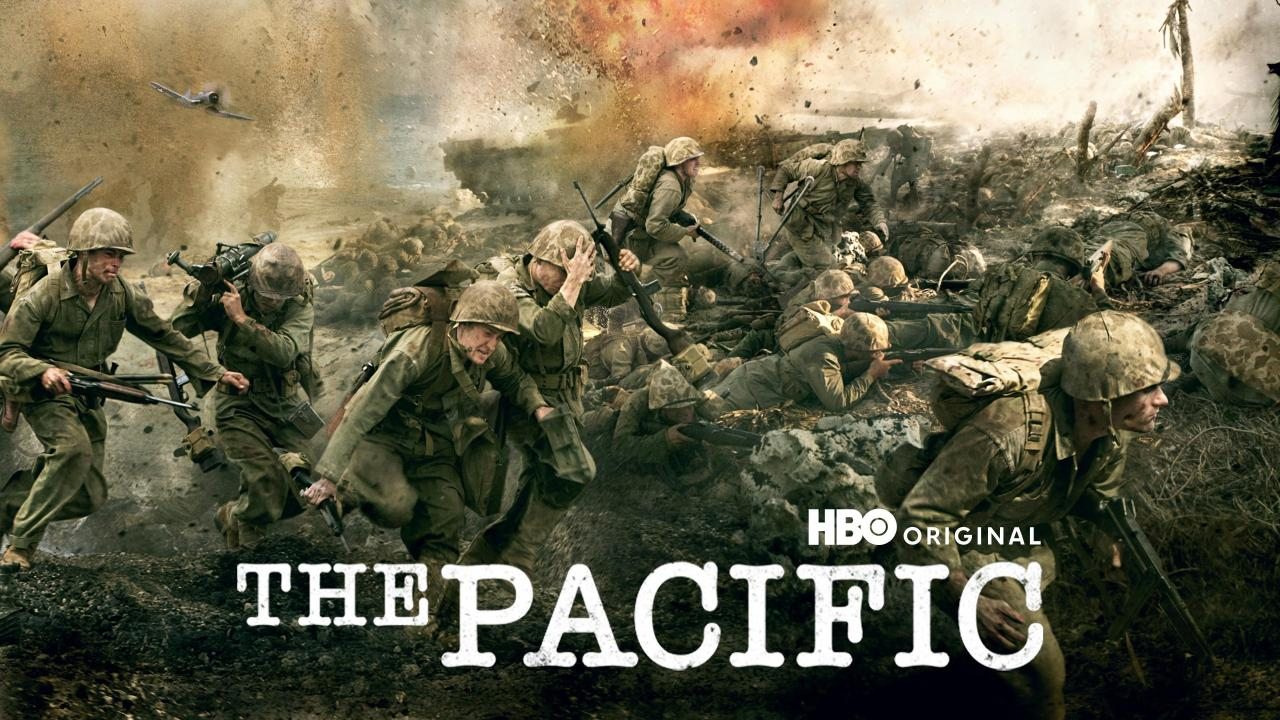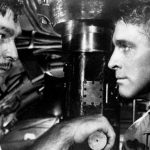The Pacific (2010)

The Pacific (2010), created by Tom Hanks and Steven Spielberg, is an epic miniseries that explores the harrowing experiences of U.S. Marines during World War II’s Pacific Theater. As a spiritual successor to the acclaimed Band of Brothers, The Pacific delves into the complexities of war, camaraderie, and personal sacrifice. The miniseries is noted for its intense realism, intricate character portrayals, and its depiction of the brutal realities of combat. This essay provides a comprehensive analysis of The Pacific, examining its narrative structure, character development, thematic elements, and cultural impact.

The Pacific is structured as a ten-part miniseries, each episode contributing to the overarching narrative of the U.S. Marine Corps’ campaign in the Pacific. The series is based on the real-life experiences of three Marines: Eugene Sledge, Robert Leckie, and John Basilone, whose stories are adapted from their respective memoirs, With the Old Breed, Helmet for My Pillow, and Red Blood, Black Sand.
The miniseries begins with the early stages of the Pacific War and follows the Marines through pivotal battles, including Guadalcanal, Peleliu, and Iwo Jima. The narrative interweaves personal stories with historical events, providing a detailed portrayal of the Marines’ experiences and the brutal nature of warfare.
The plot focuses on the transformation of the soldiers from inexperienced recruits to battle-hardened veterans. It depicts their struggles with the physical and psychological toll of war, their interactions with each other, and their growth as individuals. Key events include the intense combat scenes, the loss of comrades, and the moments of respite and reflection that punctuate the chaos of battle.

One of the strengths of The Pacific is its nuanced portrayal of characters and their development throughout the series. The miniseries excels in presenting the personal and emotional journeys of its central characters, highlighting their growth and struggles in the face of war.
Eugene Sledge (played by Joe Mazzello): Sledge’s journey from a naive recruit to a seasoned Marine is a central narrative thread in the series. His character undergoes significant development as he confronts the harsh realities of combat and grapples with the psychological impact of war. Mazzello’s performance captures Sledge’s transformation with depth and sensitivity, showcasing his inner turmoil and resilience.
Robert Leckie (played by James Badge Dale): Leckie’s story is marked by his experiences as a soldier and his personal reflections on the nature of war. Dale portrays Leckie with a blend of toughness and vulnerability, effectively conveying the character’s internal conflict and the toll of combat on his psyche.
John Basilone (played by Jon Seda): Basilone’s character is depicted as a war hero with a strong sense of duty and leadership. Seda’s portrayal brings to life Basilone’s bravery and sense of honor, emphasizing the sacrifices he makes for his comrades and his country. Basilone’s story is both inspirational and tragic, adding a layer of emotional depth to the series.
The supporting cast, including actors like Rami Malek, Will Rothhaar, and Adam Beach, also deliver strong performances that contribute to the series’ overall impact. Each character’s personal story is interwoven with the broader narrative, providing a rich tapestry of experiences and perspectives.
The Pacific explores several significant themes related to war, camaraderie, and the human condition:
The Brutality of War: The miniseries presents an unflinching depiction of the violence and suffering of combat. The graphic portrayal of battle scenes and the psychological impact of war highlight the series’ commitment to realism. The depiction of brutal conditions and the loss of life underscores the harsh realities faced by the Marines.
Camaraderie and Brotherhood: The bond between the Marines is a central theme in The Pacific. The series emphasizes the importance of friendship and mutual support in the face of adversity. The camaraderie among the soldiers provides emotional strength and solidarity, highlighting the significance of these relationships in surviving the horrors of war.
Personal Sacrifice and Heroism: The miniseries explores the concept of sacrifice through the stories of its characters. The heroism of individuals like John Basilone, who are willing to put their lives on the line for their comrades and their country, is depicted with respect and admiration. The theme of personal sacrifice is woven throughout the series, reflecting the broader context of the war effort.
Psychological Impact: The Pacific delves into the psychological toll of combat on soldiers. The series examines the trauma, fear, and emotional strain experienced by the Marines, offering a nuanced portrayal of their mental health struggles. This theme is explored through the personal reflections and interactions of the characters, highlighting the long-lasting effects of war.

The visual and technical aspects of The Pacific contribute significantly to its impact. The miniseries is known for its high production values, including realistic battle sequences, detailed set design, and immersive cinematography. The use of practical effects and location shooting enhances the authenticity of the combat scenes and the overall atmosphere.
The series employs a gritty and realistic visual style, with intense battle scenes that convey the chaos and violence of war. The cinematography captures the harsh environments and the physical demands placed on the Marines, adding to the sense of realism. The attention to detail in the production design, including the recreation of historical settings and equipment, contributes to the film’s authenticity.

The Pacific received widespread critical acclaim for its portrayal of World War II and its focus on the Pacific Theater. Critics praised the series for its authenticity, character development, and emotional depth. The miniseries was lauded for its realistic depiction of combat and its exploration of the personal experiences of the soldiers.
The series was also recognized for its contribution to the genre of war dramas, building on the success of Band of Brothers and offering a new perspective on the war. It was praised for its ambitious scope and its commitment to depicting the complexities of the Pacific War.
The Pacific won several awards, including Golden Globe Awards and Primetime Emmy Awards, affirming its critical success and its impact on audiences. The miniseries has been recognized as an important addition to the portrayal of World War II in popular media, providing a nuanced and powerful representation of the experiences of U.S. Marines.
The Pacific (2010) stands as a significant achievement in the genre of war dramas, offering a detailed and emotionally resonant portrayal of the U.S. Marine Corps’ experiences during World War II’s Pacific Theater. Through its compelling narrative, nuanced character development, and realistic depiction of combat, the miniseries provides a powerful exploration of the themes of war, camaraderie, and personal sacrifice. The film’s visual and technical excellence, combined with its critical acclaim, solidifies its place as a noteworthy and influential work in the portrayal of historical warfare. As a testament to the courage and resilience of the soldiers, The Pacific remains a poignant and enduring contribution to the understanding of World War II.











